Lesser stag beetles facts
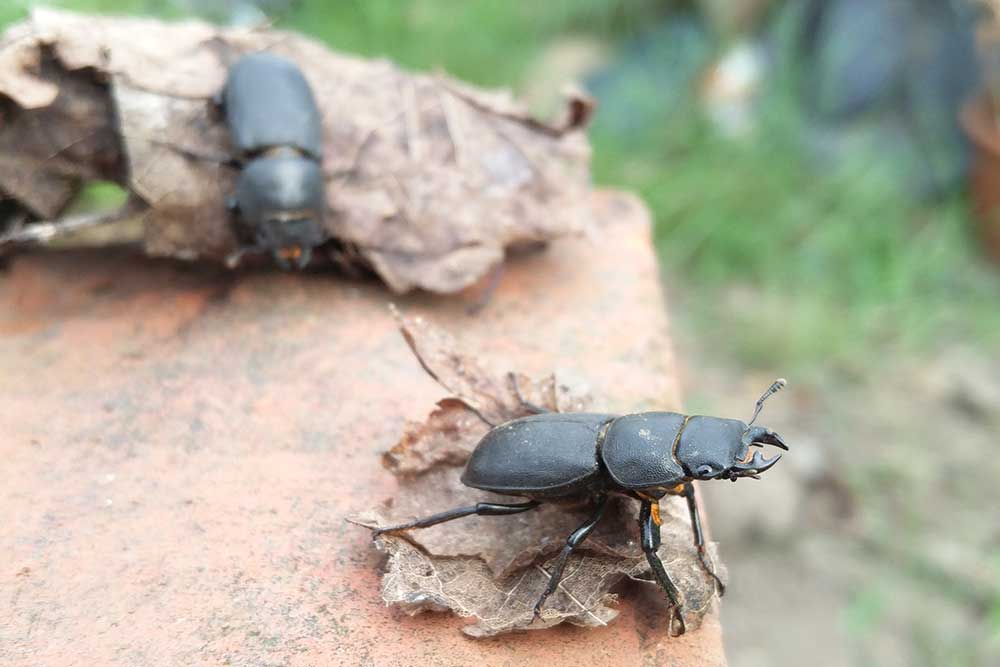
Lesser stag beetles (Dorcus paralellapipidus) are the smaller cousin of our more well-known stag beetle (Lucanus cervus). They also rely on dead wood for a large part of their life cycle. However, instead of laying their eggs in rotting wood underground, they use wood and tree stumps above the ground. They are more common and have a wider range than the stag beetle.
Identification
Lesser stag beetles range in size from about 2-4cm and are matt black in colour. The males lack the enlarged antler-like jaws of the male stag beetle. Males and females are still different, but the differences are less noticeable than in the stag beetle.
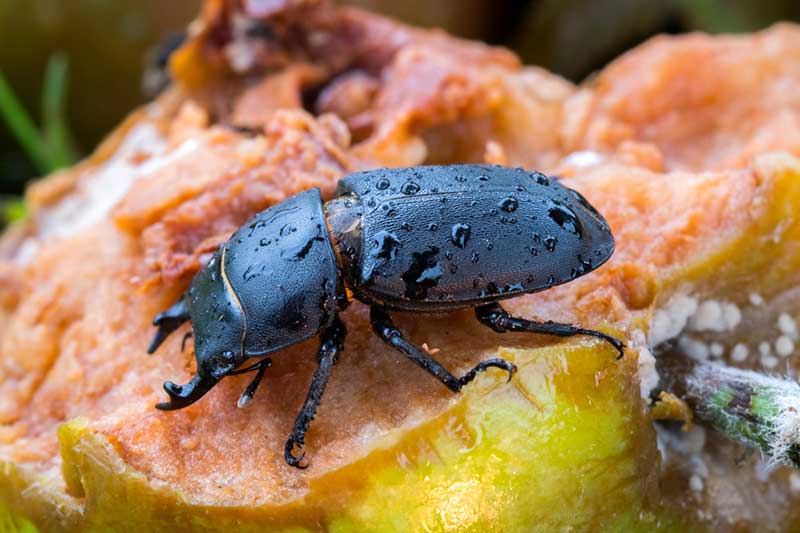
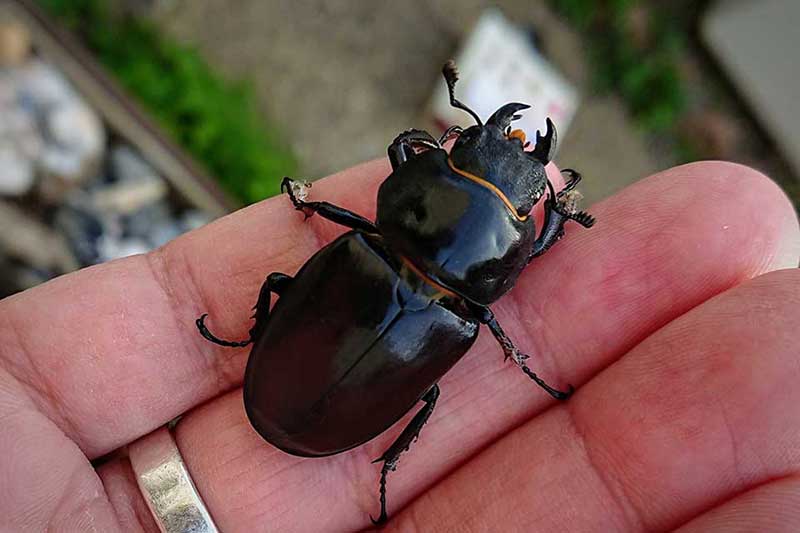
Life cycle
Females lay their eggs in rotting wood above ground. Larvae only take 1-2 years to develop and unlike stag beetles the adults don’t necessarily die at the end of the season; they can live for up to 2 years. They are often found hiding or sheltering in plant pots, under stored wood and sometimes in sheds and houses.
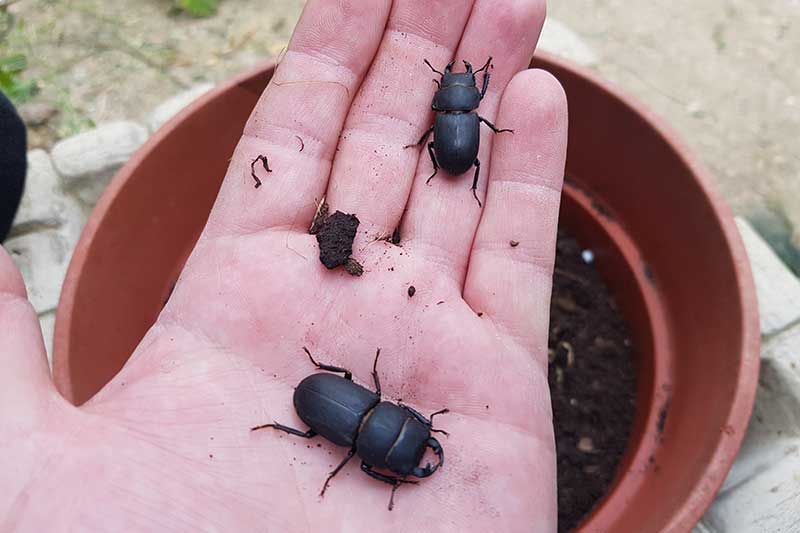
Distribution
Lesser stag beetles are more widely distributed across the country than stag beetles.
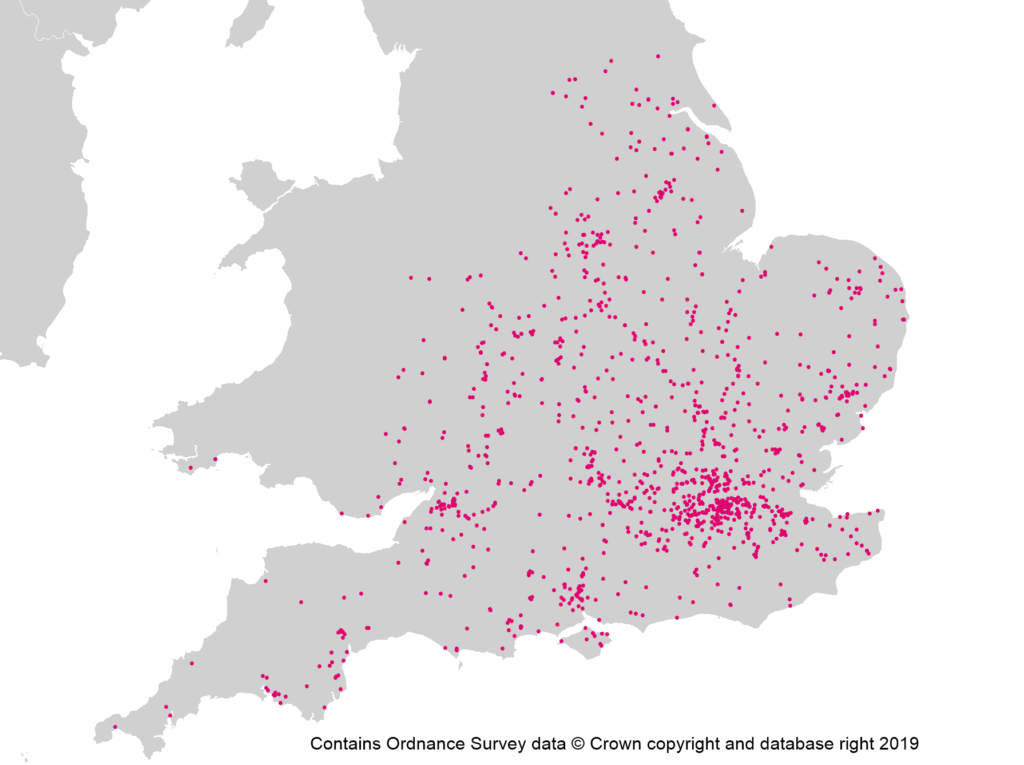
For more information on identification, life cycles and behaviour of lesser stag beetles you can visit Maria Fremlin’s website Stag Beetles for Everyone.
